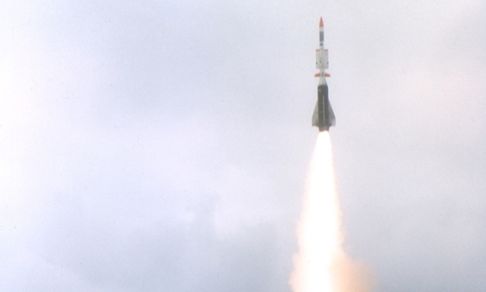NATO’s chief urged Moscow on Wednesday to refrain from wasting money on countering an “artificial enemy” as alliance foreign ministers met to calm Russian fears over a European missile shield.
NATO Secretary General Anders Fogh Rasmussen said the alliance still wants to reach a deal with Russia to cooperate on the system after President Dmitry Medvedev threatened last month to deploy missiles to EU borders.
“It’s a shared interest to protect our populations against a real missile threat,” Rasmussen told reporters at the start of two days of talks that will also touch on tensions with Pakistan and the NATO mission in Kosovo.
“It would definitely be a waste of valuable money if Russia started to invest heavily in countermeasures against an artificial enemy that doesn’t exist,” he said, adding that Moscow should instead spend on job creation and modernising Russian society.
Rasmussen said NATO would try to “clear the air” with Russian Foreign Minister Sergei Lavrov when he joins the talks on Thursday.
NATO and Russia have been at odds over the missile shield despite agreeing last year to explore ways to cooperate in the system, which Western officials insist is aimed at warding off attacks from Iran or other “rogue states.”
Moscow wants its former Cold War foe to provide a legally-binding document stating the system is not aimed against Russia, but NATO says it has made enough statements to that effect and that cooperation is the best solution.
NATO has also rejected Russia’s demand to build a common system that shares sensitive data and allows Moscow to have a say on when to respond to a possible attack.
“They know too well what the situation is and unless they listen and hear what we are saying, I don’t think we will be able to agree,” Lavrov said during a visit to Lithuania.
Russia’s top general, Nikolai Makarov, warned that Moscow was “being pushed” into a new arms race although it did not want one.
German Foreign Minister Guido Westerwelle said reaching an agreement was an “imperative” because “we will only be able to safeguard our security with Russia.”
President Dmitry Medvedev last month announced that Russia was ready to deploy intermediate range Iskander missiles in the Kaliningrad exclave that borders EU members Poland and Lithuania.
Russia later also switched on a new radar warning system against incoming missiles in Kaliningrad and said it reserved the right to strike NATO’s European shield components if its demands were not met.
NATO and the United States have sought to improve ties with Russia since President Barack Obama took office in 2009.
But US Secretary of State Hillary Clinton angered Russia this week by voicing “serious concerns” about the country’s parliamentary elections and calling for allegations of fraud and vote-rigging to be investigated.
Despite lingering suspicions between the former Cold War foes, Russia has allowed the alliance to use its territory to send vital supplies to troops in Afghanistan.
The transit route through Russia has become all the more important since Pakistan shut down supply lines in anger at deadly air strike on the Afghan border last month that killed 24 Pakistani troops.
Rasmussen urged Pakistan to cooperate with NATO’s investigation into the incident because “the right response to that regrettable incident is not less but more cooperation.”
A NATO mission closer to home, Kosovo, was also discussed with Rasmussen calling on Serbs living in northern Kosovo to remove all remaining barricades that have stoked violence at the disputed border with Serbia.










